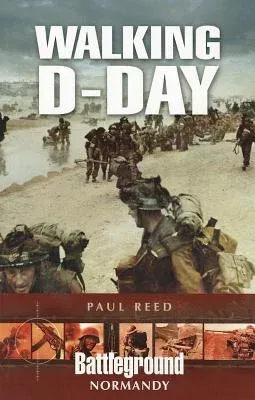Paul Reed's latest battlefield walking guide covers the site of the
largest amphibious invasion of all time, the first step in the Allied
liberation of France and the rest of northwest Europe. The places
associated with the landings on the Normandy coast on 6 June 1944 are
among the most memorable that a battlefield visitor can explore. They
give a fascinating insight into the scale and complexity of the Allied
undertaking and the extent of the German defenses - and into the
critical episodes in the fighting that determined whether the Allies
would gain a foothold or be thrown back into the sea. All the most
important sites are featured, from Pegasus Bridge, Merville Battery,
Ouistrehem and Longues Battery to Juno, Gold, Omaha and Utah Beaches,
Pointe du Hoc and Sainte-Mère-Église. There are twelve walks, and each
one is prefaced by a historical section describing in vivid detail what
happened in each location and what remains to be seen. Information on
the many battlefield monuments and the military cemeteries is included,
and there are over 120 illustrations. Walking D-Day introduces the
visitor not only to the places where the Allies landed and first clashed
with the Germans defenders but to the Normandy landscape over which the
critical battles that decided the course of the war were fought.

